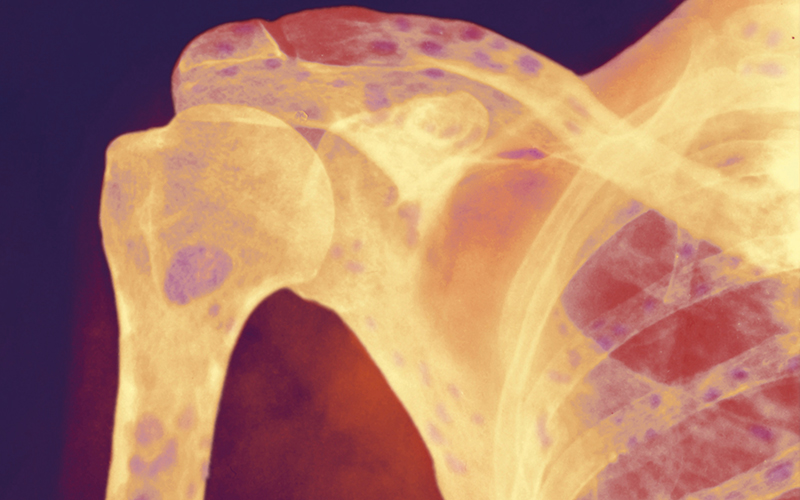We look at the work of Dr Mosavar Farahani who received an IBMS Research Grant in 2023 to help fund her work on disease progression and skeletal complications in multiple myeloma.

Dr Mosavar Farahani is a Senior Lecturer in the Division of Life Sciences at Northampton University. Her IBMS research grant is helping to fund a project investigating the value of plasma galectin-3 in predicting disease progression and skeletal complications in multiple myeloma (MM). MM is characterised by a multistep process that arises from a pre-malignant asymptomatic state named monoclonal gammopathy of undetermined significance (MGUS), evolving to an intermediary stage, so-called “smouldering multiple myeloma”(SMM), and eventually culminates in overt clinical disease with involvement of multiple organs/tissues with potentially life-threatening complications (symptomatic multiple myeloma). However, events that trigger the disease transformation from an asymptomatic clinical state to aggressive disease remains poorly understood.

One of the hallmarks of active MM is bone disease due to a tumour-cell-driven imbalance between osteoclast bone resorption and osteoblast bone formation, creating a favourable cellular environment for bone resorption. The most important clinical manifestations of MM are lytic bone lesions leading to pathological fractures. Galectin-3 is a galactoside-binding protein that is involved in bone homeostasis. Galectin-3 acts within the cancer cells to regulate the various support cells to influence leukaemia cell survival. The aim of this research is to investigate the possibility of galectin-3 interaction with the receptor activator of nuclear factor kappa-B ligand (RANKL) as one of the critical triggering events in MM transformation. It also aims to explore the possibility of using plasma galectin-3 as an early prediction marker of MM disease progression to enable clinicians to make therapeutic decisions early, thus improving clinical outcome, and possibly identify new therapeutic targets for drug therapy.
This study is a collaboration between the University of Northampton, University of Liverpool, and Peterborough City Hospital. The major benefit for a successful outcome includes greater understanding of myeloma disease progression and development of myeloma bone disease. This may potentially pave the way for developing a diagnostic test for early diagnosis of disease progression during the “watch and wait” period before any serious complications such as renal damage or myeloma bone disease manifest.
Other 2023 grants
Recipient: IBMS Fellow Dr Paul Livingstone, Cardiff Metropolitan University
Project title: Exploring the application of myxobacteria isolated from soil as living antibiotics against Neisseria gonorrhoeae
Recipient: IBMS Fellow Dr Matthew Simmonds, University of Lincoln
Project title: Determining how the antagonistic relationship between CD47-CALR in MPN and MDS can be manipulated to increase immune surveillance and enhance current therapeutic outcomes
Applications for IBMS Research Grants 2024 are open and the deadline for applications is 31 March. For more information and to apply, visit bit.ly/486JnIQ
Image credit | Science Photo Library




